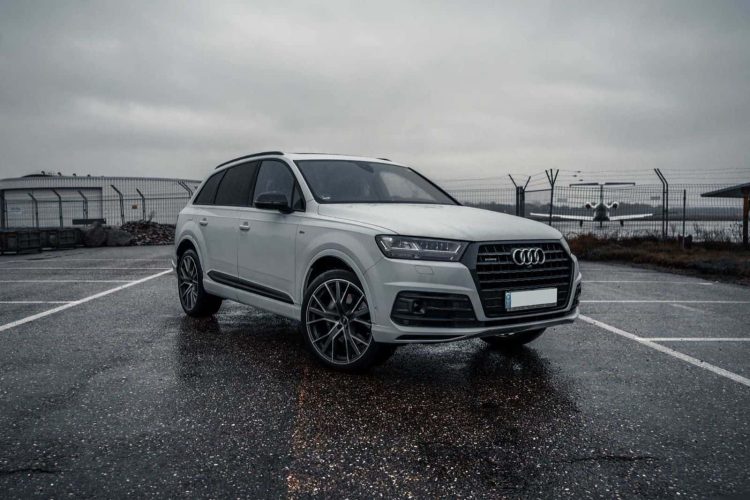Discover the Most Reliable German Cars
The Most Reliable German Cars: Performance, Durability, and Style
German cars impress with advanced automotive engineering thanks to their focus on reliable performance and luxury. Be it a person who loves to drive or a person who wants to make a long-term investment in a vehicle, Audi, BMW, Mercedes-Benz, and Porsche can be trusted with building cars that last. But how are these vehicles built to be so strong, and which vehicles are the recommended choices for your next car purchase or rental?
In this blog post, we are going to list some of the most reliable German cars available in the automotive market that impress their buyers and owners in terms of strength, reliability and durability, and performance along with cost effectiveness. From luxury to Sports cars and family SUVs, we have the right options for you.

The best things about German cars
German engineering has long been renowned for its superior craftsmanship and attention to detail. German cars offer reliability, longevity, and a driving experience that stands apart from the competition.
German Engineering Excellence
- German car brands like Audi, BMW, and Mercedes-Benz produce vehicles known for their superior build quality and performance.
- These brands are synonymous with reliability because of their meticulous design and use of high-quality materials.
Longevity and Durability
- German cars are designed to last. Many of them can easily exceed 200,000 miles with proper maintenance, offering impressive longevity compared to other brands.
- Durable German components ensure that cars like the BMW 3 Series and Porsche 911 maintain their performance year after year.
Low Maintenance
Costs
- While luxury German cars are often associated with high repair costs, many models are known for their low maintenance and repair costs in the long term.
-
German cars are built with high-quality materials that last longer, reducing the frequency of part replacements.
The Most Reliable German Car Brands
German car brands have earned their place at the top of the global automotive industry by consistently producing vehicles known for their reliability and performance. Here are the top brands and models you should consider:
Audi Q7
The Quattro all-wheel-drive system provides excellent handling and traction, even in adverse conditions, making it a dependable choice for diverse road conditions. The Q7 also boasts relatively low maintenance costs, high resale value, and a spacious, comfortable interior that holds up well over time. Overall, the Audi Q7 is a great option for those seeking a reliable, luxurious, and family-friendly SUV.
- Exceptional Build Quality: Designed with durable materials for longevity.
- Advanced Safety Features: Includes adaptive cruise control, lane-keeping assist, and emergency braking.
- Robust Engine Options: Offers smooth performance and fuel efficiency.
- Low Maintenance Costs: Fewer mechanical issues and long-term reliability.
- High Resale Value: Retains value well compared to other luxury SUVs.
- Spacious Interior: Comfortably accommodates up to seven passengers, with high-quality finishes.
BMW M3 Competition
The vehicle’s xDrive all-wheel-drive system provides excellent stability and control in various driving conditions, while its low maintenance costs and durable build ensure that it remains a reliable choice for performance enthusiasts. The M3 Competition also holds strong resale value, making it a solid long-term investment.
- Exceptional Performance: Equipped with a 3.0L turbocharged inline-6 engine producing 503 hp.
- xDrive All-Wheel Drive: Offers enhanced stability and control in various conditions.
- Advanced Suspension System: Provides precise handling and smooth driving experience.
- High Resale Value: Retains value well due to its performance and brand reputation.
- Track-Ready: Designed for both everyday driving and track performance.
Mercedes S63
The S63 is also known for its relatively low maintenance costs for a high-performance vehicle, as well as its strong resale value. With a focus on both luxury and performance, the S63 remains a top choice for those seeking a reliable, high-performing luxury sedan, while the luxurious interior boasts high-end materials and cutting-edge technology.
- AMG-Enhanced Engine: Features a 4.0L twin-turbo V8 engine with 603 hp for incredible acceleration.
- 4MATIC All-Wheel Drive: Provides exceptional control and stability in all conditions.
- High Resale Value: Retains value well due to its performance, luxury, and brand reputation.
- Luxurious Interior: Offers a refined, high-tech cabin with premium materials and comfort features.
- Track-Ready Performance: Capable of both everyday driving and thrilling track experiences.
Porsche Panamera
Its Porsche Active Suspension Management (PASM) system ensures exceptional handling and ride comfort, while the all-wheel-drive system offers great traction and stability. The Panamera’s interior features top-notch materials and technology, providing a luxurious driving experience. It also benefits from relatively low maintenance costs for a high-performance vehicle and holds excellent resale value.
- Powerful Engine Options: Offers V6 and V8 engines, delivering exceptional acceleration and top speed.
- Porsche Active Suspension Management (PASM): Provides superior handling and ride comfort.
- All-Wheel Drive: Ensures great traction and stability in various driving conditions.
- High Resale Value: Retains value well due to its performance and Porsche’s strong brand reputation.
Volkswagen Golf 8 GTI
The Golf 8 GTI is equipped with modern technology and a high-quality interior, offering a refined cabin with advanced features like a digital cockpit and intuitive infotainment system. As with most Volkswagen models, the Golf 8 GTI is known for its low maintenance costs and solid build quality, making it a great investment for long-term ownership.
- Powerful Engine: 2.0L turbocharged engine producing 245 hp for a thrilling driving experience.
- Responsive Handling: Front-wheel-drive with a sport suspension for dynamic performance.
- Low Maintenance Costs: Known for its reliability and fewer mechanical issues.
- High Resale Value: Retains value well due to its performance, quality, and Volkswagen’s reputation.
- Modern Technology: Features a digital cockpit, intuitive infotainment system, and advanced safety features.
How to Choose the Most Reliable German Car?
Many people buying a German vehicle would pick purchasing such a car since they are known to be picky about reliability. Cars manufactured in Germany are considered well-engineered and performing, like German brands such as BMW, Audi, Mercedes-Benz, and Porsche. Out of the numerous brands available in the market, how will you be confident that you bought the right one? Here are the essential features that will assist you in determining the most durable German car that will suit your requirements:
1. Performance and Power
German cars are renowned for their performance and driving dynamics, making them a favorite choice among driving enthusiasts. When selecting your car, it’s essential to assess the performance specifications that meet your driving preferences.
2. Maintenance and Repair Costs
While German cars are generally known for their reliability, some models may require more frequent upkeep due to their complexity and advanced technology. Maintenance costs can vary significantly depending on the model, with high-performance cars typically requiring more attention and higher repair costs.
3. Resale Value
Another important consideration when purchasing a reliable German car is its resale value. Many German cars, particularly those from brands like Porsche, BMW, and Audi, are known to retain their value well over time. This is important if you plan to sell or trade your car in the future.
4. Fuel Efficiency
If fuel efficiency is a priority, several German car brands offer options that balance power with economy. From diesel-powered vehicles to hybrid options, you can find a model that delivers great performance without compromising on fuel economy.
5. Safety Features and Technology
German cars are equipped with the latest safety features and advanced technology, which contribute to their reliability on the road. Many of these features, such as automatic emergency braking, lane-keeping assist, and adaptive cruise control, not only improve safety but also enhance the overall driving experience.
Most Reliable German Cars Conclusion
Choosing a reliable German car means investing in exceptional engineering, performance, and longevity. Brands like BMW, Mercedes-Benz, Audi, Volkswagen, and Porsche have set the global standard for reliability and innovation, offering models that combine cutting-edge technology with timeless craftsmanship.
Whether you prioritize performance, safety, luxury, or efficiency, there’s a German car designed to meet your needs and exceed your expectations. By carefully considering factors like maintenance, resale value, and driving preferences, you can confidently select a vehicle that will serve you faithfully for years to come.
Don’t wait to experience the unparalleled quality and dependability of German engineering. Discover your perfect car today and drive with peace of mind, knowing you’ve made a choice that lasts.
People Also Asked
Which German car brand is the most reliable?
When evaluating the reliability of German car brands, Porsche consistently stands out. A 2011 Canadian study revealed that 97.4% of Porsches from the previous 25 years were still operational, highlighting their longevity. Additionally, the Porsche 911 has been recognized by the Technischer Überwachungsverein (TÜV) as Germany’s most reliable car.
Which lasts longer, Audi or BMW?
When comparing Audi and BMW, BMW generally has a slight edge in reliability and longevity, according to studies like J.D. Power’s Vehicle Dependability Report, where BMW ranks higher. However, BMW vehicles typically come with higher maintenance and repair costs over their lifespan compared to Audi. Both brands produce durable, high-performance vehicles, but their longevity largely depends on proper maintenance, driving habits, and adherence to service schedules. Ultimately, BMW may last longer on average, but Audi can be a more cost-effective choice in terms of upkeep.
Which German car is easy to maintain?
When considering German cars that are relatively easy and cost-effective to maintain, several models stand out due to their engineering simplicity and widespread availability of parts. Here are some notable options:
1. Volkswagen Golf
The Volkswagen Golf is renowned for its practicality and reliability. Its straightforward design and the widespread availability of parts make it a cost-effective choice for maintenance. The Golf has been around since 1972 and is one of the most reliable and popular cars in the world.
HOTCARS
2. Audi A3
The Audi A3 combines luxury with reliability. Models from around 2016 have been noted for their dependability, providing a stimulating driving experience reminiscent of larger sports sedans.
GO BANKING RATES
3. BMW 3 Series (E46 Generation)
The E46 generation of the BMW 3 Series, produced between 1998 and 2006, is often praised for its balance of performance and reliability. Its mechanical simplicity compared to newer models makes it easier and less expensive to maintain.
TOPSPEED
4. Mercedes-Benz W123
Produced between 1976 and 1986, the Mercedes-Benz W123 is celebrated for its durability and longevity. Many units have surpassed 500,000 kilometers with minimal mechanical issues, making it a preferred choice for taxi services worldwide.
WIKIPEDIA
5. Porsche 944
The Porsche 944, produced from 1982 to 1991, is a classic sports car that offers great performance and handling. It is also one of the most affordable German cars to maintain, with an average annual maintenance cost of just $467.
GERMAN CAR COMPANY
When selecting a German car for ease of maintenance, it’s advisable to choose models with a reputation for reliability and widespread parts availability. Regular maintenance and adherence to service schedules are crucial to ensure longevity and reduce overall ownership costs.





